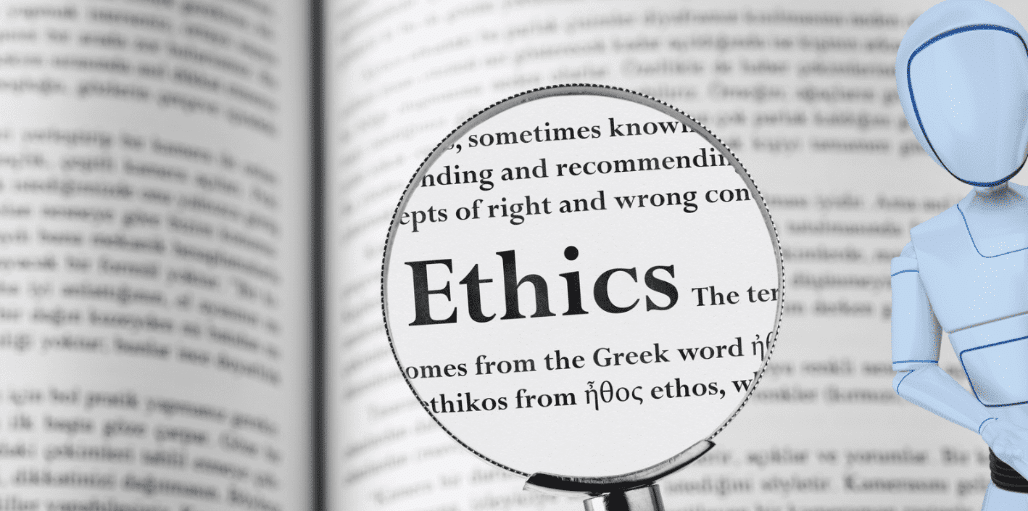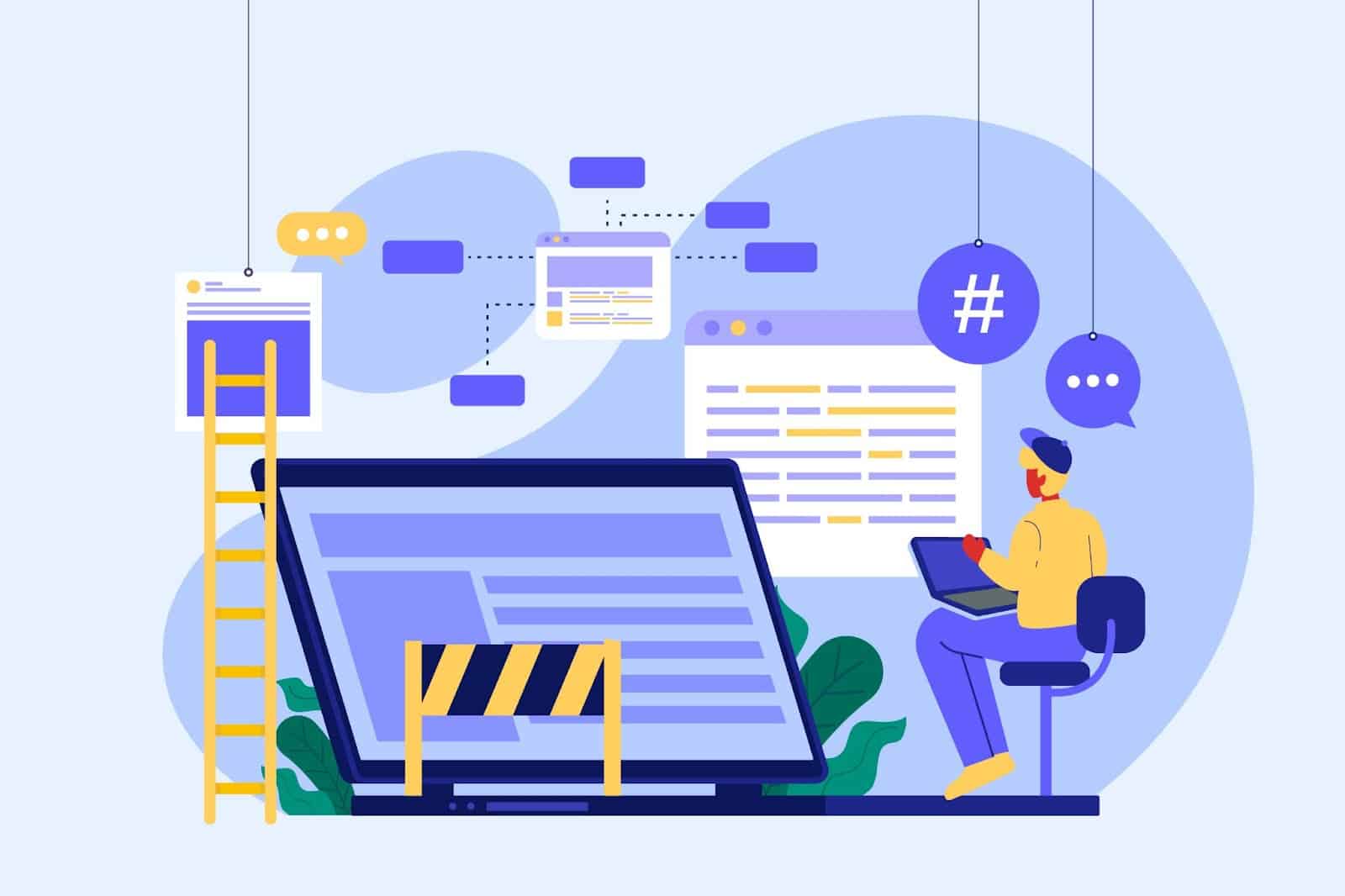Finding talented AI developers is hard but important. Beyond core engineering abilities, one must hire AI developers who need a strong sense of right and wrong to guide their work. Ethics knowledge is not just “nice to have” anymore but truly necessary.
So how can hiring managers and recruiters evaluate AI ethics skills when interviewing AI developers? Suggests techniques and questions to include.
Discuss Relevant Ethical Issues
Present made-up scenarios about new AI ethics problems and discuss them with candidates. This shows their critical thinking on real-world issues. Sample topics:
- Unfairness in facial recognition systems
- Lack of clarity in how AI makes decisions
- Potential job losses from automation
- Misuse of AI to create misleading content
- Ethical worries with technology identifying emotions
Look for balanced analysis considering different stakeholder views. Probing ethical reasoning is just as vital as technical skills for AI roles.
Aim for nuanced discussions, not just “right” or “wrong” views. There are rarely black-and-white answers to AI ethics dilemmas. Assess thinking processes more than conclusions.
Ask follow-up questions to go deeper. For example: “What trade-offs come with that approach?” or “How would we validate success?” Critical thinking skills are key.
Explore Personal Values and Motivations
Understanding what personally drives a candidate gives insight into their principles. Ask about:
- Why they chose AI as a career
- Their views on how AI should help society
- Where they draw ethical lines regarding AI uses
- What does success in the field mean to them
Listen for motivations to help people rather than just make money. Hire AI Developers aligned with values are less likely to just obey unethical orders.
Also discuss upbringing, role models, and experiences shaping perspectives. Core beliefs tend to start early and guide choices.
Assess Communication Skills
Strong communication is key for explaining AI and convincing teams to apply ethical methods.
Present scenarios needing to communicate complex tech simply, convey risks compellingly, and pitch proposals for safeguards. Judge skills in making convincing, ethical cases.
Can they distil complexity into simplicity? Do explanations build understanding effectively? Are arguments thoughtful and persuasive? Communications expertise enables influence.
Evaluate Cross-Functional Collaboration Skills
AI ethics requires collaborating across teams like legal, compliance, product management, design, and customers. Assess candidates’ appetite for cross-functional work.
Discuss past experiences working across boundaries to implement ethical practices.
How did they gain alignment? Who did they need to influence? What resistance did they overcome?
Look for demonstrated skills in coordinating alignment, communicating with non-technical partners, and negotiating tradeoffs. AI ethics progress requires collaborating broadly.
Probe Understanding of Responsible AI Frameworks
Explore candidate awareness of leading responsible AI standards like the OECD Principles, Google’s Practices, and Microsoft’s Guidelines.
Discuss how frameworks provide blueprints for ethical practices across data, models, evaluations, transparency, controls, and culture building.
Gauge knowledge by applying principles to specific organizational practices. For example, how would they implement bias testing or impact assessments?
Exposure to research-based frameworks indicates keeping up with state-of-the-art ethics standards and turning principles into practice.
Learn About Personal Ethics Education
Ask about personal efforts to expand ethics knowledge through courses, books, conferences and other learning.
Top candidates will pursue ethics education, even if not required. They see continuous learning as vital to stay current on this fast-moving topic.
Discuss learnings applied from ethics resources. Do they reference thought leaders?
A self-driven pursuit of knowledge reflects the humility and diligence required for ethical excellence.
Invite Candidates to Ask Ethics Questions
Turn the tables – invite candidates to ask about the company’s AI ethics program, policies, training and governance.
The types of clarifying questions they pose provide clues into ethics knowledge and engagement. Do queries demonstrate sophistication about leading practices?
Informed candidates will have standards to assess an organization’s ethical maturity relative to peers. They know what to probe on.
Additionally, their inquiries indicate what practices matter most to them personally when evaluating roles. This exposes ethical red lines.
Discuss Ethical Obligations to Users and Society
Explore candidates’ sense of ethical obligations as AI developers beyond what laws mandate.
Do they aim to maximize user well-being and empowerment? Safeguard rights? What principles guide purpose?
Discuss responsibilities to society. For example, ensuring AI does not exacerbate inequality, discrimination, or loss of opportunity.
Look for a commitment to user value and social good, not just the pursuit of innovation for its own sake or profit. Character matters.
Learn How They Strengthen Personal Ethics
Being ethical requires self-reflection and continuous growth. Ask how candidates strengthen their character and conscience.
Do they read philosophy? Study ethical role models. Participate in values-focused groups? Give back to the community? How do they stay grounded?
Look for practices building wisdom, empathy, integrity, and moral courage – not technical skills alone. AI needs both a head and a heart.
Character development indicates the capacity to guide to build your AI developers team responsibly despite complex tradeoffs and pressures.
Evaluate understanding of bias and fairness
Bias and unfairness are major ethical concerns with AI systems. Assess candidate knowledge of bias types, sources, testing methods, and mitigation approaches.
Discuss scenarios on gaps in facial recognition, skewed financial loan decisions, biased hiring algorithms, and more. Ask how they would quantify and address unfairness technically and organizationally.
Look for the nuanced grasp of bias tradeoffs, limitations of current methods, and connection to real-world context. Solutions should consider impacts on users.
Explore their experience detecting and remedying bias on past projects. What barriers did they face? How did they influence teams to prioritize fairness?
Probing biased understanding indicates the ability to guide the development of equitable, socially conscious AI.
Discuss transparency and explainability
Many AI systems are black boxes, obscuring how outputs are determined. This lack of transparency breaks trust.
Discuss needs and techniques for explaining how models work and influence decisions. When is interpretability required? How can complexity be conveyed understandably to users?
Assess experience communicating AI limitations, uncertainties, sensitivities and errors. Do they value explainability despite costs of accuracy or efficiency?
Look for a commitment to responsible transparency that empowers users. AI developers set the tone – pushback against trends hiding AI behind intellectual property claims.
Responsible developers make AI transparent and accountable by design.
Explore experience with impact assessments
Impact assessments methodically identify potential AI risks before launch. Discuss familiarity with leading practices.
Walk through how they would facilitate assessment cross-functionally. What disciplines are essential to include? What analysis methods work best? How to turn findings into action plans?
Ask about impacts considered beyond fairness – safety, accountability, transparency, privacy, security, capability control, etc. How do they scope assessments based on context?
Proven skills in conducting impact assessments demonstrate the ability to foresee and mitigate downstream problems before deployment. Past diligence predicts future care.
Discuss the application of human rights principles
Look for a deep understanding of emerging risks to rights posed by AI and a steadfast commitment to protecting them. Are they aware of initiatives like the Toronto Declaration?
Attribute as much weight to protecting human rights as solving immediate business problems. Rights-respecting developers build trust and prevent abuses.
Evaluate empathy and emotional intelligence
AI developers shape how technology impacts lives. Candidates should demonstrate empathy, self-awareness, and care for all users.
Discuss the needs of disadvantaged groups and how to address them in design. For example, accessibility for those with disabilities. Do they consider broad user perspectives?
Look for self-questioning, doubt, humility and openness to other viewpoints. These reflect the maturity essential to handle AI’s ethical complexities.
Probe how they managed tensions between business targets and potential user harms on past projects. What tradeoffs did they navigate? Whose interests won out and why? Reveals priorities.
Empathetic leaders guide AI to empower not overpower people. Assess intrinsic compassion.
Explore experience with internal ethics reviews
Leading companies use ethics review boards to assess AI risks before launch. Discuss their exposure to this process.
Walk through how they would present an initiative to reviewers. What information is key? How to address difficult questions? How to implement recommendations?
Look for a nuanced understanding of review benefits and limits. Rigorous reviews demonstrate commitment but can also create unhelpful bureaucracy. Insight comes from participating.
Ask how they advocated for users during past reviews. Whose interests did they defend? How do they balance business priorities? Do they value oversight?
Hands-on ethics reviews are intensive learning experiences that build sound judgment. Seek candidates tested by the process.
Probe organizational change expertise
AI ethics requires driving major changes in policies, processes, and culture. Assess change leadership skills.
Discuss techniques for persuading executives, coordinating stakeholders, and shifting mindsets. How have they spearheaded the adoption of ethical practices internally before? What resistance did they overcome?
Look for perseverance and creativity surmounting barriers. Progress requires persuading many people to move in a new direction.
Ask for examples of how they influenced teams without formal power. Did they employ data, stories, incentives, or appeals to values?
Responsible innovation takes change agents within organizations. Evaluate proven skills.
Probe understanding of responsible AI governance
Implementing ethical AI requires strong governance structures, not just technical controls. Discuss their experience establishing policies, processes, and oversight.
What governance approaches have they helped implement? For example, ethics charters, risk committees, assessment protocols, monitoring systems, and incident response.
How did they get alignment on governance priorities across functions? Who needs to be involved? What pushback did they encounter internally and how was it overcome?
Look for integrating governance end-to-end in the development lifecycle, not one-off compliance activities. Discuss how they scaled ethical reviews, approval gates, and controls across portfolios.
Explore experience establishing ethics education programs
Education is crucial for building workforce skills and applying ethical practices. Discuss their experience developing training content and implementing programs.
What types of ethics curricula have they created or delivered? Workshops, simulations, e-learning modules, speaker series, etc. How did they make training engaging and impactful?
Ask how they gained executive buy-in for company-wide education initiatives, including securing time and budgets. How did they drive adoption across different audiences and roles?
Look for expertise in making ethics knowledge stick through training tied to real work, communities of practice, and coaching. One-off lectures have little lasting effect. Ongoing education matters.
Ask how they have kept personal ethics knowledge current. What resources or programs do they find most valuable? Commitment to continuous learning predicts high standards.
Strong ethics education expertise demonstrates the capacity to uplift workforce competencies, not just platitudes. Probe program development and delivery skills.
Discuss experience applying inclusive design principles
AI should reflect diverse users and their needs. Explore their familiarity with inclusive design and accessible technology.
Ask how they have engaged representative users in development cycles before. What methods worked well? How did they address barriers faced by marginalized groups?
Look for a commitment to equitable access, not just avoiding exclusion. For example, multimodal interfaces, multilanguage content, and bias-free data.
Discuss how they measured product impact on different user segments. Did they track variability in experience metrics across groups? Why or why not?
Ask how they built an understanding of disadvantaged user needs within teams. For example, co-creation sessions, reading, and simulations of using products with impairments.
Inclusive designers understand success requires seeking out and addressing diverse perspectives, not designing for the majority alone. Probe candidate record embracing differences.
Evaluate understanding of algorithmic audits
Audits inspect AI systems for risks after deployment and recommend fixes. Discuss their experience performing audits or being audited.
Walk through how they would conduct an algorithmic audit evaluating fairness, explainability, and other principles. What statistical and data analysis methods work best? When are audits needed?
Ask how they addressed problems uncovered through past audits. What were the challenges in convincing teams to accept audit findings and devote resources to issues?
Look for valuing oversight and transparency even when uncomfortable. The willingness to interrogate one’s work signals a commitment to improvement and accountability.
Discuss how they made addressing audit recommendations a priority. How did they implement technical and organizational fixes? How to scale auditing practices across portfolios?
Exposure to rigorous auditing demonstrates an understanding of its role in assuring ethical AI. Seek hands-on experience delivering meaningful accountability.
When interviewing AI developers take a holistic approach to evaluating both ethical grasp and technical abilities.
Discussing real issues, policies, past work, motivations and communications provides a 360-degree perspective. Hire AI developers showing ethical commitment in words and actions. As AI risks grow, ethics knowledge is an essential skill for responsible innovation.
What tactics do you use to assess AI ethics skills when recruiting developers? What interview questions work well? Please share insights we may have missed!
Facebook: https://www.facebook.com/pastfutur.official
Twitter: https://twitter.com/PastFutur
Linkedin: https://www.linkedin.com/company/pastfutur
Telegram: https://t.me/pastfutur_official




Bwer Pipes: Pioneering Irrigation Excellence in Iraq: Explore Bwer Pipes for cutting-edge irrigation solutions that set the standard for excellence in Iraqi agriculture. Our advanced sprinkler technology and durable pipes deliver precise water distribution, enabling farmers to achieve optimal crop yields and sustainable farming practices. Explore Bwer Pipes
Enhance Your Farm’s Productivity with Bwer Pipes: Discover Bwer Pipes’ comprehensive range of irrigation products designed for Iraqi farmers. Our high-quality pipes and sprinkler systems ensure even water distribution for healthier crops and increased yields. Explore Bwer Pipes
What i do not realize is in fact how you are no longer actually much more wellfavored than you might be right now Youre very intelligent You recognize thus considerably in relation to this topic made me in my view believe it from numerous numerous angles Its like men and women are not fascinated until it is one thing to do with Lady gaga Your own stuffs excellent All the time handle it up
This webpage is outstanding. The site owner’s passion is evident in the excellent content. I’m in awe and anticipate reading more amazing pieces like this one.